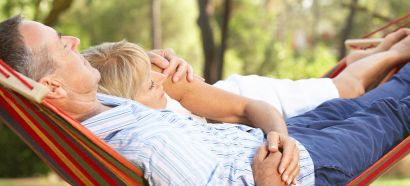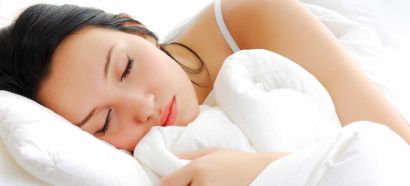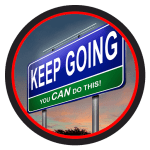Current state of Readiness: Action
Individuals have made intentional lifestyle modifications.
Our Goal: To keep you motivated and on track.
Featured Videos & Articles
Are you Sleep Deprived
- Do this simple test starting on a Sunday:
- Do not drink alcohol or caffeine; do not smoke;
- Go to sleep about the same time every night and get an uninterrupted seven to eight hours of sleep for the next six nights.
- Then, on Saturday morning, sleep in. See how long your body will let you sleep.
- If you sleep longer than you did during the week, then you have a sleep debt.
Simple Tips
- Drink a glass of warm milk.
- Milk contains tryptophan, a chemical that may promote sleep in some people.
- Have a light snack, but only if you’re hungry.
- Going to bed hungry can affect your sleep.
- Be careful not to overeat; indigestion can interrupt sleep.
- Stay out of bed until you feel tired enough to go to sleep.
- Whenever you’ve been lying in bed for 20 minutes and can’t fall asleep, go into another room and do something relaxing.
- Exercise
- Avoid exercising within three hours of bedtime.
- Exercise actually stimulates the body by speeding up the heart rate and metabolism.
- Exercising on a regular basis (during the day) may help you sleep well at night.
- Smoking
- Nicotine is a stimulant that can keep you awake.
- Avoid smoking in the six hours before your bedtime.
- Caffeine
- Caffeine can delay your sleep and cause you to wake up during the night.
- Avoid caffeinated drinks and foods (coffee, tea, cola, chocolate) after noon.
- Liquids
- Avoid drinking fluids before bedtime to decrease the chance of having the urge to go to the bathroom during the night.
- Review Your Medications Which May Affect Sleep
- Alertness medications
- Analgesics
- Antidepressants
- Arthritis medications
- Asthma medications
- Blood pressure medications
- Cold/allergy medications
- Diet pills
- Talk to Your Doctor: Medical Conditions That Affect Sleep
- Sleep apnea: A condition characterized by temporary breathing interruptions during sleep.
- Symptoms include loud snoring and a gasping or snorting sound when the sleeping individual starts to breathe again.
- Treatments include breathing devices that keep the airway open during sleep.
- Narcolepsy: A sleep disorder marked by sudden, uncontrollable urges to sleep, causing an individual to fall asleep at inappropriate times.
- Insomnia: Sleep problems characterized by difficulty falling asleep, frequent wakings during the night, or waking up earlier than desired.
- Restless Leg Syndrome
- The “pins and needles,” “internal itch,” or “creeping, crawling sensation.”
- Most often these symptoms occur when one is sleepy or lying down and are relieved only by vigorously moving the legs.
- Sleep apnea: A condition characterized by temporary breathing interruptions during sleep.
Tips for Staying Alert
- Eat breakfast.
- Avoid a “sugar rush.”
- Instead, eat meals and snacks that combine complex carbohydrates and protein.
- Move around.
- Stimulate your body by taking a brief walk outside.
- Vary your activities.
- Don’t focus on the same task for long periods of time.
- Get chilly.
- A surge of cold air might perk you up.








